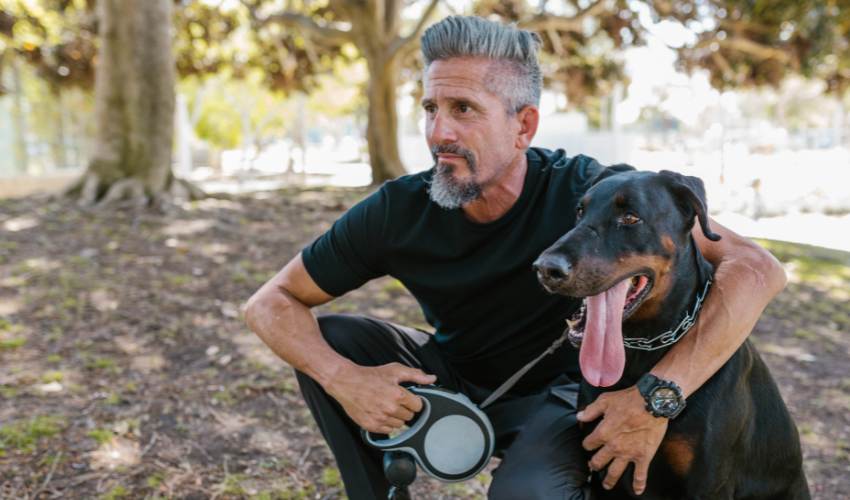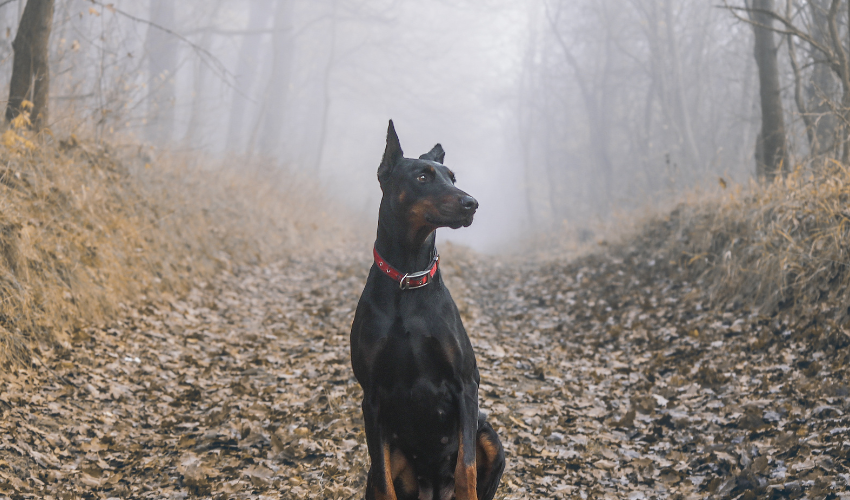The Doberman is a breed of dog that is known for its loyalty, intelligence, and protective nature. Originally bred in Germany, the Doberman has become a popular breed all over the world. In this article, we will provide you with all the information you need to know about the Doberman breed, including its history, characteristics, and temperament.
History of the Doberman
The Doberman breed was first developed in the late 19th century by a German tax collector named Karl Friedrich Louis Dobermann. Dobermann wanted a dog that was loyal and protective, but also intelligent enough to accompany him on his rounds. He bred several different breeds together, including the Rottweiler, the German Pinscher, and the Weimaraner, to create the Doberman breed.
Characteristics of the Doberman
The Doberman is a medium-sized dog that typically weighs between 60 and 100 pounds. They have a short, smooth coat that can be black, blue, red, or fawn in color. Their ears are typically cropped and their tails are docked. Dobermans are known for their muscular build and athletic ability.
Temperament of the Doberman
Dobermans are intelligent and loyal dogs that make great companions. They are also protective of their owners and can be wary of strangers. Proper socialization and training is important to ensure that your Doberman is well-behaved and friendly with other people and dogs.
Training and Exercise
Training:
Dobermans are intelligent dogs that are easy to train. They respond well to positive reinforcement and consistency. It is important to start training your Doberman as early as possible to ensure that they develop good habits and behaviors.
Exercise:
Dobermans are high-energy dogs that require a lot of exercise. They enjoy running, playing, and going for long walks. Regular exercise is important to ensure that your Doberman stays healthy and happy.

Health and Grooming
Health:
Dobermans are generally healthy dogs, but like all breeds, they are prone to certain health conditions. These include hip dysplasia, heart disease, and cancer. Regular veterinary checkups and a healthy diet can help prevent and manage these conditions.
Grooming:
Dobermans have a short, smooth coat that requires minimal grooming. They should be brushed regularly to remove loose hair and dirt. They also need their ears cleaned and their nails trimmed regularly.
Frequently Asked Questions
Are Dobermans aggressive?
Dobermans are not naturally aggressive, but they can be protective of their owners. Proper socialization and training is important to ensure that they are well-behaved and friendly with other people and dogs.
Do Dobermans make good family pets?
Yes, Dobermans can make great family pets. They are loyal and protective of their owners and can be good with children. Proper socialization and training is important to ensure that they are well-behaved around other people and dogs.
How much exercise does a Doberman need?
Dobermans are high-energy dogs that require a lot of exercise. They should be exercised for at least an hour a day, and they enjoy running, playing, and going for long walks.
What health problems are common in Dobermans?
Dobermans are prone to certain health conditions, including hip dysplasia, heart disease, and cancer. Regular veterinary checkups and a healthy diet can help prevent and manage these conditions.
Do Dobermans shed a lot?
Dobermans have a short, smooth coat that sheds moderately. Regular brushing can help minimize shedding.
Conclusion
In conclusion, the Doberman is a loyal and intelligent breed of dog that can make a great companion for the right owner. They require proper socialization, training, and exercise to ensure that they are well-behaved and healthy.
If you are considering adding a Doberman to your family, make sure to do your research and find a reputable breeder or rescue organization. With proper care and attention, a Doberman can be a loving and devoted member of your family for many years to come.























